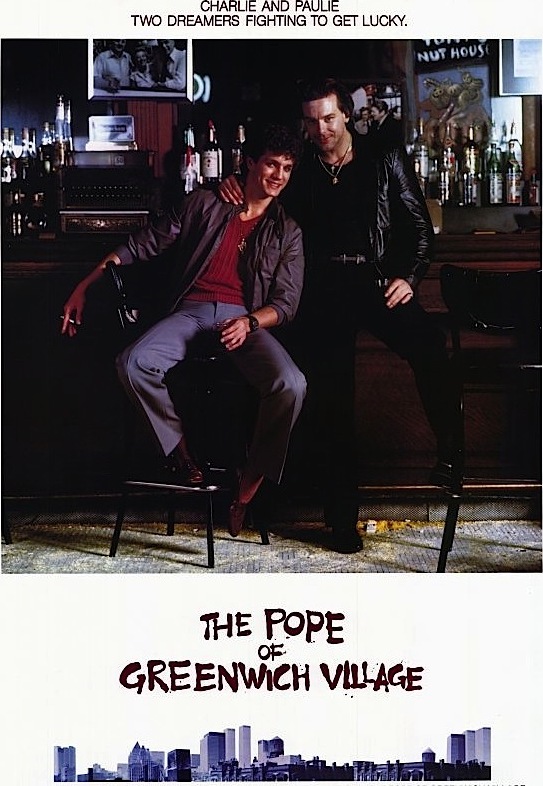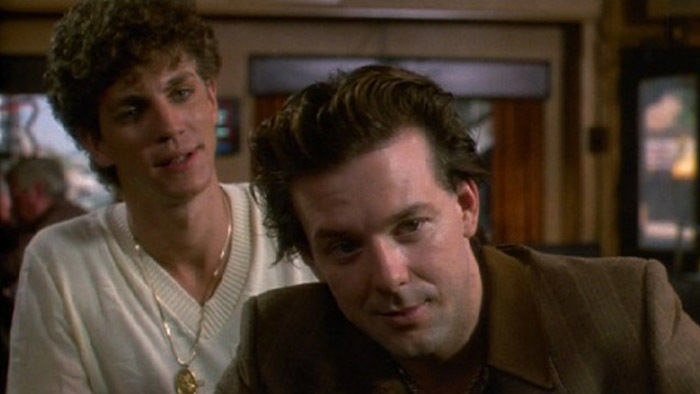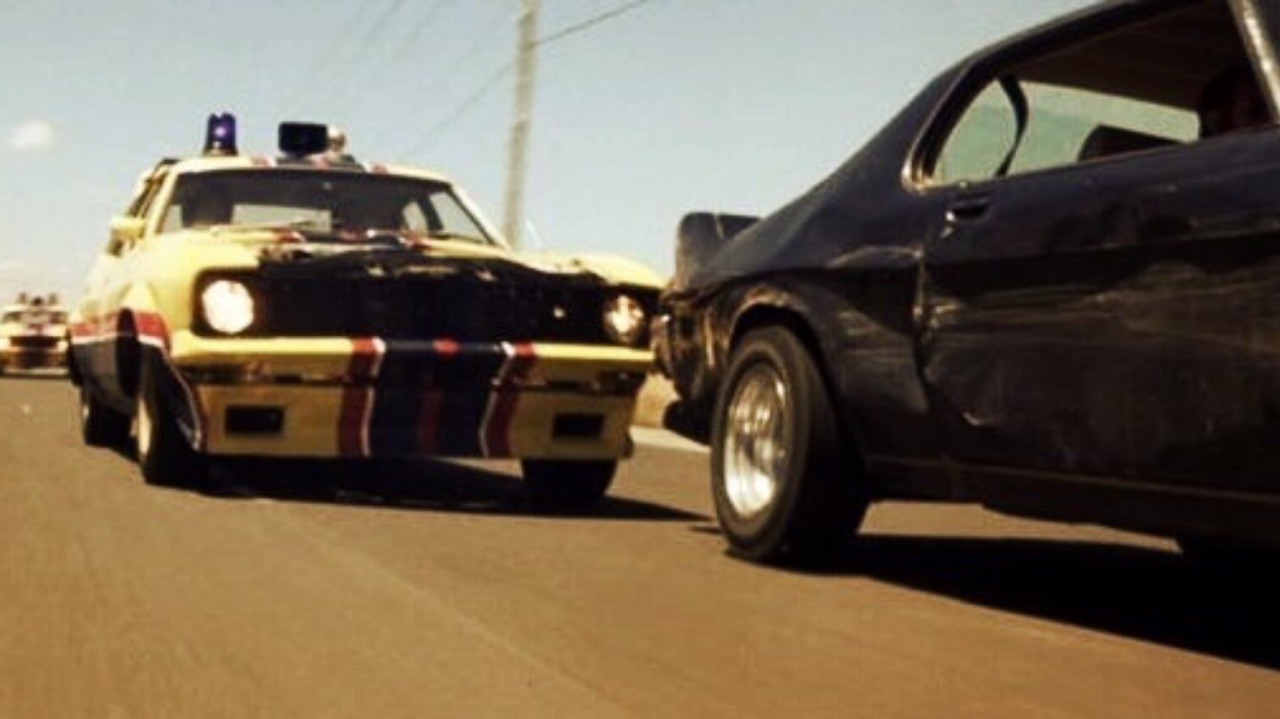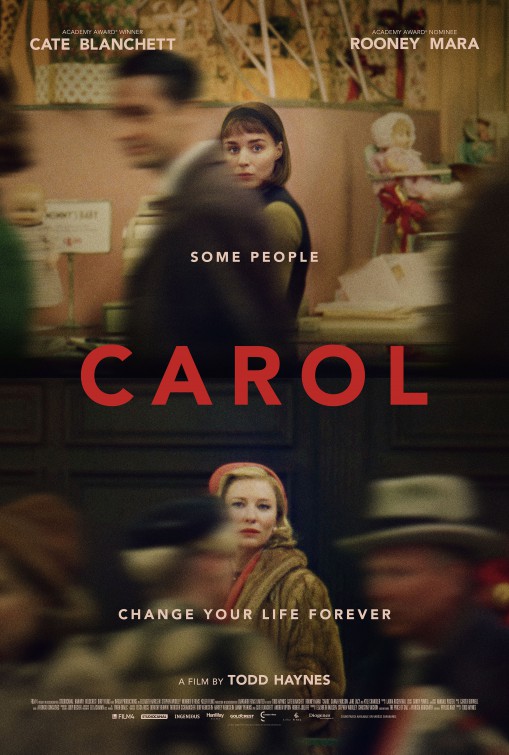We all have our guilty, or at least semi-guilty, pleasures. When it comes to TV and movies, there are always those shows or genres that hold a personal appeal that exceeds their artistic merit. In my case, one of those shows is the long-running CW series,
. The back-story on my introduction and gradual attraction to the show may offer some explanation for my fandom, and it may even convince a few of you to give the show a chance.
Basically, the show follows Dean and Sam Winchester, a pair of brothers who hunt monsters throughout the United States. Vampires, werewolves, djinn, demons, and all other forms of nasty creatures are their prey. Their fights with the supernatural, with each other, and their brotherly bonding are the root of nearly every story in the show's ongoing run of 11 seasons.
In October of 2008, one of my roommates had been going on an on about the show, which she had been watching for its first three seasons. She was always sure to be home when every new episode aired. One of those October nights, I happened to be idle and watched the episode "Monster Movie" with her. It was hilarious. It showed a cheeky self-awareness and refusal to take itself too seriously, along with plenty of great little nods to classic monster movies of the past. Sure, the star actors and most of the supporting cast were impossibly attractive people, but there was a savvy to the writing and tone that stuck with me.
I continued to watch the rest of that fourth season, and I soon became hooked. Once I got past the glamorous facades of the actors, I saw a show that had really put in considerable thought and creative work. The world of the Winchesters has a wonderful mythology constructed from much of the great lore on supernatural creatures, weaving them together in creative and compelling ways. The writers clearly wanted to go beyond the common tropes of most monsters and their origins, while retaining the appealing elements of the horror genre. This became even clearer once I went back and watched the first three seasons. Taken as a whole, the first five seasons of the show comprise a fantastic story arc with great arch villains, amazingly strong supporting characters, and a masterful blend of tense horror and levity. I've watched those first, wildly entertaining 100-or-so episodes twice now, and I'll certainly do so again in the near future.
Seasons 1 through 5 (2005-2010)
The entire Winchester saga begins when Sam and Dean's mother is killed by a mysterious, yellow-eyed man with strange powers when Sam is a baby and Dean is a mere four-year-old. Their father, a former marine, then dedicates his entire life to tracking down the thing that destroyed their lives. He raises his two boys to track and kill all forms of evil creatures that roam the earth. The pursuit of "Yellow Eyes" continues for another two decades, until Sam and Dean are in their mid-twenties and their father is almost completely off the grid. When Yellow Eyes's trail becomes warm again, the series truly begins.
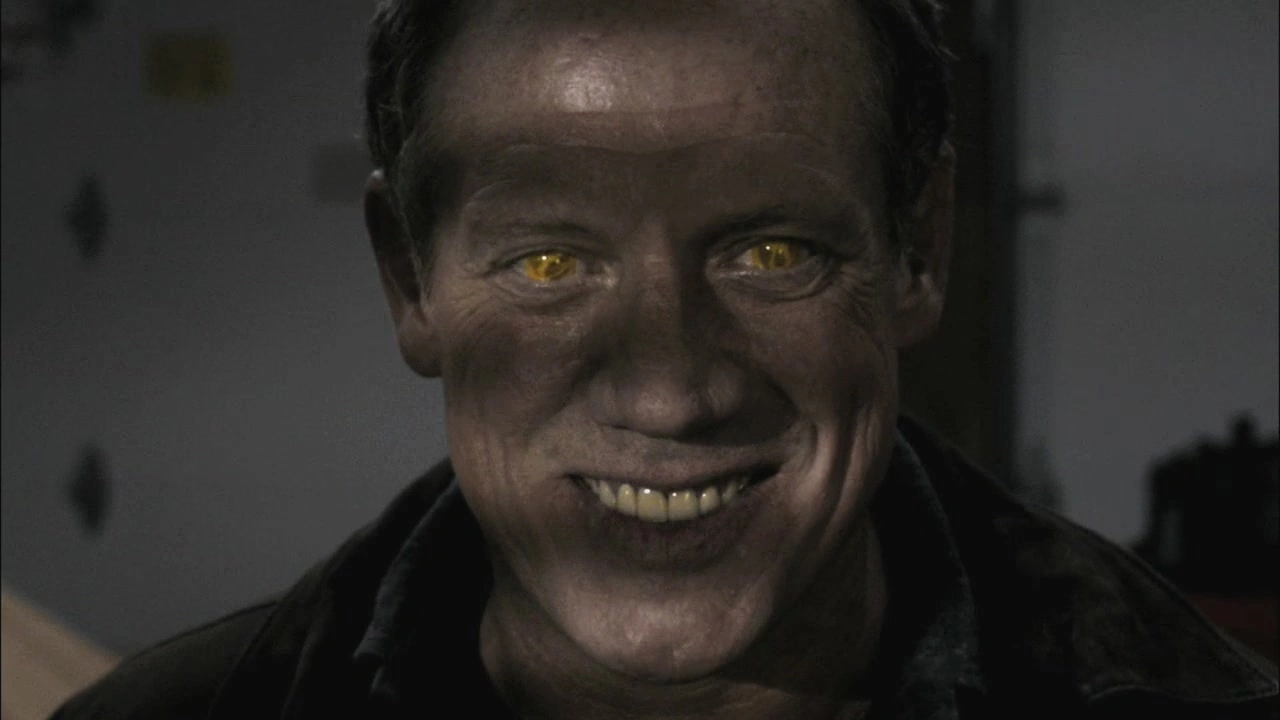 |
The frighteningly powerful demon Azazel serves as a great
nemesis for the first few seasons. His machinations pave the
way for none other than Lucifer himself. |
The succeeding five seasons build amazingly well. While many episodes are given over to the Winchester boys hunting down baddies taken from urban legend, popular folktales, and various other dark places in world mythology, the greater story for the first three seasons is the pursuit of Yellow Eyes, whose true identity is eventually revealed as the demon Azazel. As the chase grows more intense, the mythology of the Supernatural universe deepens and expands to include demons, angels, and more than a few figures from Judeo-Christian mythology. The fourth and fifth season build perfectly towards a grand confrontation with none other than Lucifer himself, though not exactly in the way that you may expect.
One great strength of these initial seasons was the supporting cast of characters. Aside from Sam and Dean, we have their father John, who is a fascinating enigma of intensity and grit. Companions like Bobby, Jo and her mother Ellen, and Rufus are all extremely tough and welcome additions. The standout for me was Gordon, the intense hunter who derives a disturbing amount of pleasure from dispatching monsters. Gordon is one of many well-rounded characters whose appearances are strong enough and rare enough that their presence is always a treat during these early seasons.
The main story-line is the stuff of strong, fun, fantasy adventure writing. It borrows a bit from the irreverent sensibilities of British and Irish comic book writers like Neil Gaiman and Garth Ennis (creator of
Preacher), while adding welcome doses of goofy humor. The more comedic moments would often come in the form of two or three episodes each season in which the Winchesters were confronted with a particularly ridiculous adversary. Amazingly, co-star Jensen Ackles proves to be an excellent all-around actor, including comedically.
Whatever other missteps the series may have taken after these first five seasons, this initial run was outstanding television.
Seasons 6 through 9 (2010-2014)
When I learned that the show's creator and runner, Eric Kripke, had originally planned for the series to only run for 5 seasons, I was skeptical when a sixth was announced. Kripke had essentially left the show as its runner after the fifth season, so its heart and soul was elsewhere. The four seasons following were a mixed bag:
 |
Sam, Dean, and a few other Winchesters. This little crew and
their pursuit of "Alpha" monsters helped make the 6th season
a better one that I had expected. |
Season 6 was actually surprisingly strong. The focus on angels intensifies, which I've never found the most engaging facet to the Supernatural world. Still, the primary story is that of Sam's return from Lucifer's prison, and is certainly compelling. In order not to go insane from the experience, a wall has been put into Sam's mind which has also cut him off from his soul. This sets up a dynamic with Dean that keeps their evolution as brothers an intriguing part of the season. The angel Castiel and the demon Crowley become larger presences, which is still very welcome at this point. The season finale is on an epic scale, with Castiel absorbing obscene amounts of power from Purgatory, resulting in his believing that he is now God. This certainly kept my attention heading into...
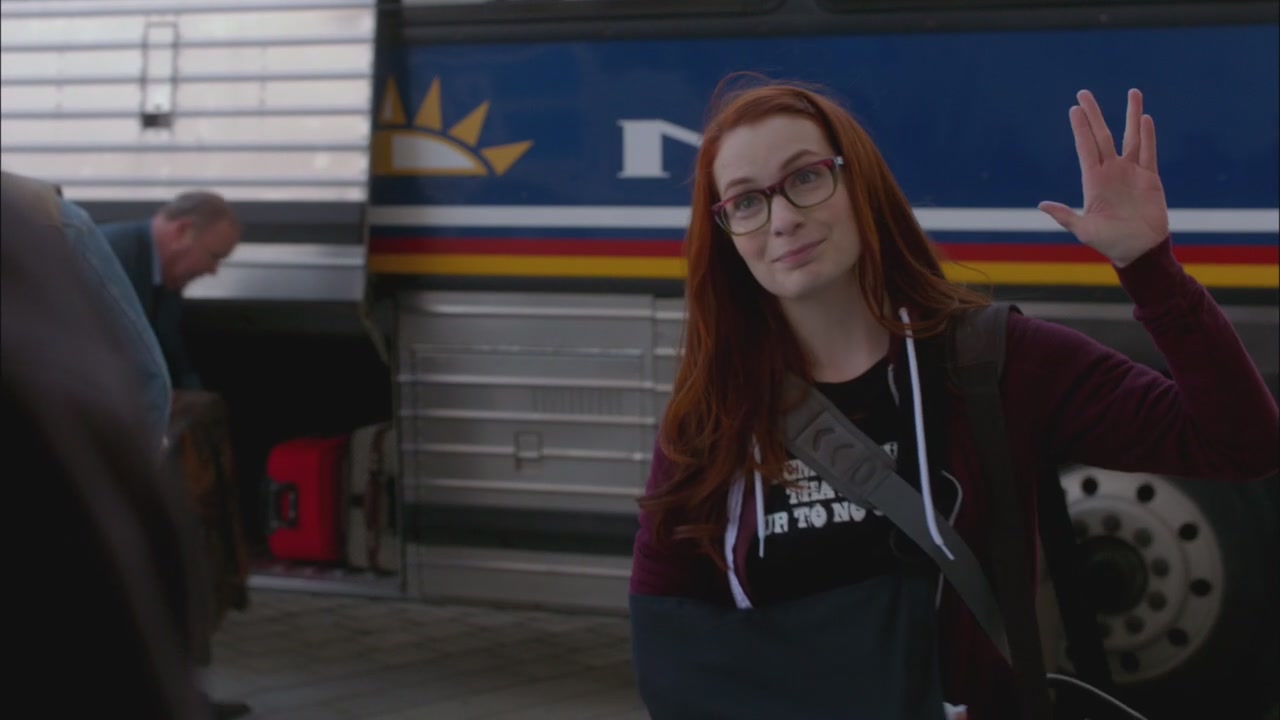 |
The hacker Charlie, played by geek-goddess Felicia Day. She
was one of several characters who appeared in season 7 who
seemed to illustrate a lame attempt to appeal to the Big Bang
Theory fan-base of nerds. |
Season 7 was, in my opinion, easily the weakest season to date. The main story is that of the Leviathan, a pack of horribly ravenous and tremendously powerful monsters accidentally set loose from Purgatory onto Earth. The setup was fairly interesting, but the story unfolds in the form of the rather silly premise of the Leviathan fattening up the populace with fast food into order to devour it. It works on a social satire level, but it doesn't mesh with the tone of previous, stronger seasons. The supporting cast takes an obvious step back at this point. Wonderfully strong characters like Joe, Ellen, and Gordon are dead, only to be replaced by the goofy Garth, the geeky hacker Charlie, and the paperweight high school nerd Kevin. All of these are almost purely comical and relatively thin characters whom I found more annoying than interesting. While there were certainly some strong and funny episodes, this was the only season which I had to convince myself to see through to the end. I wasn't terribly hopeful for season 8.
However, season 8 rebounded fairly well, thanks mostly to strong main plots. One is Dean's initial escape from Purgatory, where he was stranded at the end of season 7. He managed it only with the help of a vampire named Benny, who escaped with Dean. Benny was a strong enough character to carry much of the first half of this season. The second half was built upon the Winchesters' attempt to permanently seal the gates of Hell via an ancient ritual. Helping them is knowledge they gain from finding a headquarters of a secret society known as the Men of Letters - scholars and fighters who were equal parts occult librarians and monster hunters. Sam is tagged to endure three trials, in order to enact the ritual. However, the plan is turned on its head when a new player in the game - God's scribe, Metatron - usurps the spell and uses it to kick all of the angels out of heaven, as revenge for his being exiled millenia prior. This season still had a few too many appearances by Garth, Charlie, and other characters who I find too light and goofy. Despite this, it was very nice to see that the show-runners could rediscover some of the intensity and epic plotting that marked the earliest seasons.
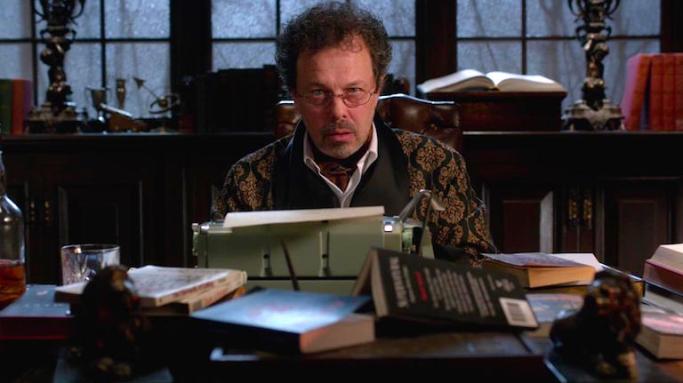 |
The scribe of God, Metatron. Like Crowley, he is a character
who is interesting and amusing in his first season or so, but
whose "sinister but funny" act I find a bit tired from overuse. |
The ninth season of
Supernatural is on par with seasons 6 and 8 - solid, but not quite reaching the heights of the series' peak in seasons 3 through 5. The two main villains are considerable - Metatron, who has become the
de facto ruler of heaven after expelling all angels; and Abaddon, a "Knight of Hell," who is an immensely powerful demon with her sights set on destroying Crowley and usurping his place as King of Hell. Abaddon is a great villain with a vicious streak on the level of Lilith and Eve in earlier seasons. This season also adds the Biblical Cain to the mix, played with imposing intesity by Timothy Omundson. By the end of this season, I had grown weary of Castiel and Crowley. The two have been a great part of this show, but their acts are a tad tired, and neither one has progressed much in the last several seasons. Neither one is particularly frightening or endearing anymore, despite the fact that actors Misha Collins and Mark A. Sheppard bring their A-games every time.
At this point, I hadn't been going out of my way to watch episodes as they originally aired. In fact, for seasons 9 and 10, I simply waited for them to show up on Netflix. Which is how I watched last season, the 10th...
Season 10 (2014-2015)
Much to my surprise, this was the best season of the series since its "Golden Age" of seasons 2 through 5.
It was almost as if someone looked over the previous four uneven seasons and made a point of retaining the strengths, scrapping the weaknesses, and even undoing a past mistake or two. The result was a season that gives me very good reason to dive into the current season, the show's eleventh.
 |
Briefly introduced in season 9, Cain (seen here, helping Dean
with his collar) is a welcome returning character. His
presence as a villain is one of the strongest and most menacing
since the seasons featuring Azazel and Lucifer. I actually
felt he was underutilized. |
The season starts with Dean gallivanting around with King of Hell, Crowley. Dean has been made a demon, in order to counteract the Mark of Cain inflicted upon him. Dean's struggle against the Mark's will towards violence is a major conflict in this season, and it allows some further evolution and exploration of Dean and Sam's relationships with each other and those close to them. There is also a solid plot-line involving the powerful and shadowy Stein family, who emerges around the midway point in the season. These lines converge in a strong finale which sees the return of one of the best and most awesomely powerful entities in the show's history.
As with the best seasons of
Supernatural, the show takes the characters to some very dark places within their own minds and souls. Whereas they have taken some safe routes in more recent seasons, season 10 allows some rather awful things happen to the Winchesters and some regular supporting characters. The most redeeming story-line for me was the return of Charlie, the cutesy hacker character whom I had previously found a nuisance. In this season, however, she returns with a "dark" doppelganger in a solid story. Even more, she meets a surprisingly brutal fate at the hands of the Stein family towards the season's end. This all hearkened back to earlier, better seasons in the show's history, when the stakes felt higher.
My only semi-major issue with this season is with one of its primary villains, the witch Rowena. Her strident, sing-song voice often oversells her ridiculously obvious attempts at cunning manipulation. While her scene-chewing approach makes for some comedic camp, it undercuts any possibility of her ever seeming truly and completely as sly or dangerous as we are meant to believe her to be.
Season 10 reinvigorated my interest in the
Supernatural series. I have begun catching up on the latest season - the show's eleventh - and it started strong. I don't know if it will ever recapture the magic of its earliest seasons, but I still enjoy the ride.










